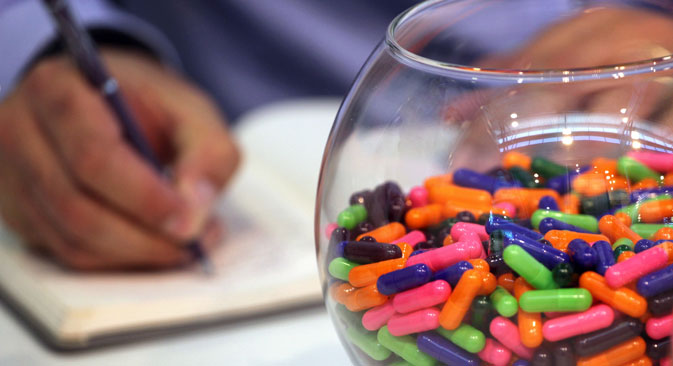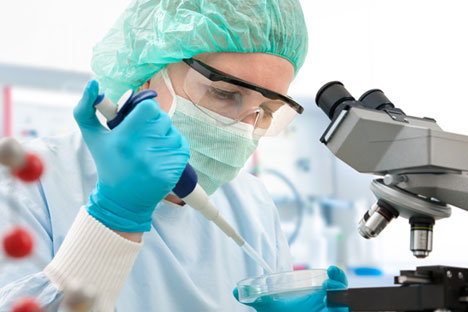Can Siberia become a biotech development center?

Russia currently imports 80 percent of the biotech products it consumes. Source: TASS
Researchers and manufacturers from seven Siberian regions want to promote the development of the medical, pharmaceutical and biotech sectors in Russia. They have put forward a project called the Siberian Biotechnological Initiative that would unite existing innovation clusters in Siberian regions.
This move could result in a 30-fold increase in the overall production of original vaccines, antibiotics, vitamins, fertilizers and the development of other biotech products over the next four years.
Joint biotech power of Siberia
“The goal of the project is to achieve a rapid modernization of the country’s biotech sector and to develop it by building on Siberia’s academic potential,” says Mariya Galyamova, director of the biotech and biomedicine cluster at Novosibirsk-based Technopark development cluster. “This includes agriculture, the pharmaceutical sector, food industry, forestry and ecology.”
The idea behind the initiative originated in the Novosibirsk Region and was later joined by Altai and Krasnoyarsk territories, and the Tomsk, Kemerovo, Irkutsk and Omsk regions in Siberia.
“This unification will make it possible to develop a single system of coordination for projects to make the most of the available production, research, academic and personnel resources,” Galyamova explains.
The official agreement on uniting all the clusters together will be signed in Novosibirsk in June 2015. However, in practice the program has already begun. For example, the SibBioFarm company, together with Technopark, the Novosibirsk Academic City and the Cytology and Genetics Institute are in the process of setting up a pilot industrial biotechnologies center called PromBioTech.
“The purpose of this center is to produce biotech products for the agricultural sector and the food industry,” says Galyamova. “On its own, the company would probably not be able to implement the project, but cooperating with other actors in the initiative makes it possible.”
Better now than never
The masterminds of the Siberian Biotechnological Initiative hope to revive the biotech industry, a sector that was almost destroyed after the breakup of the Soviet Union. Russia currently imports 80 percent of the biotech products it consumes.
The authors of the project point out that in the early 1990s, the USSR, along with the U.S., was one of the world’s biotech leaders and accounted for some seven percent of the biotech products developed worldwide. The current figure is only 0.1 percent. Compared with the USSR, modern Russia has practically ceased to produce key product substances: the production of enzymes dropped 25-fold, antibiotic substances 12-fold and feed proteins six-fold. Yet, “it is never too late to develop biotechnologies, and it is better now than never,” Galyamova says.
Sergei Netyosov, one of the world’s leading experts in molecular biology and virology, believes that the Siberian Biotechnological Initiative has good prospects.
“Siberian biotechnologists, economists and scientists have plenty of ideas and a great desire to turn them into technologies and finished products,” Netyosov says. “This is all the more so since the region already has a laboratory and an industrial base for implementing research-intensive projects. Each participating region has its own cluster working in this area. A unification will eliminate duplication and will make it possible to develop various biotech strands without unnecessary competition and raise both state and corporate funding, which is in everyone’s interest.”
All rights reserved by Rossiyskaya Gazeta.
Subscribe
to our newsletter!
Get the week's best stories straight to your inbox
